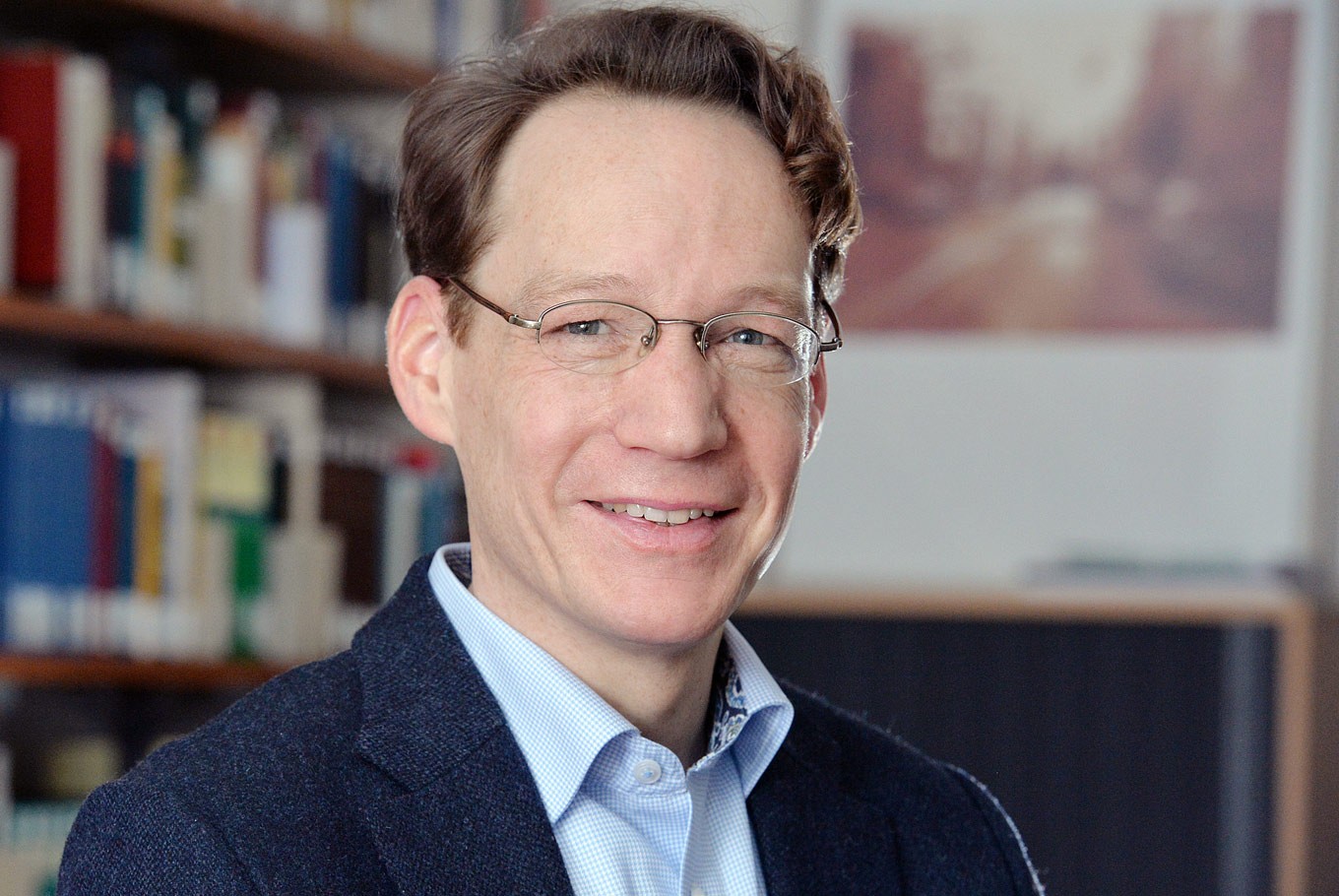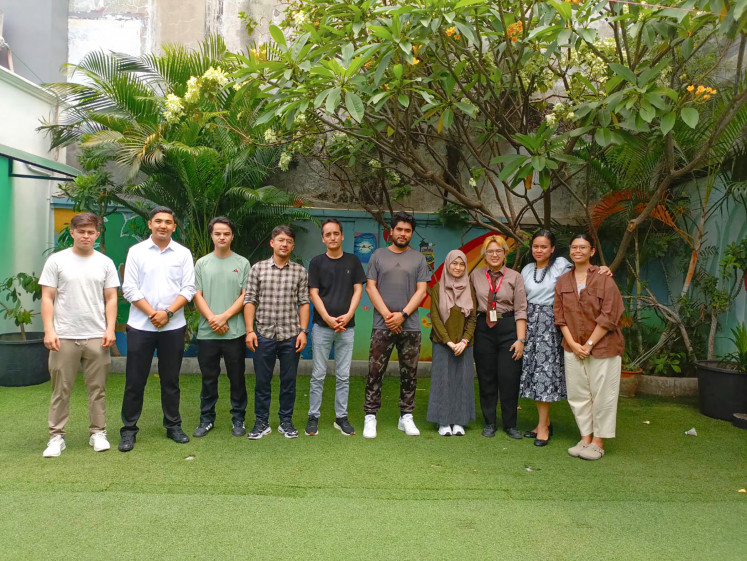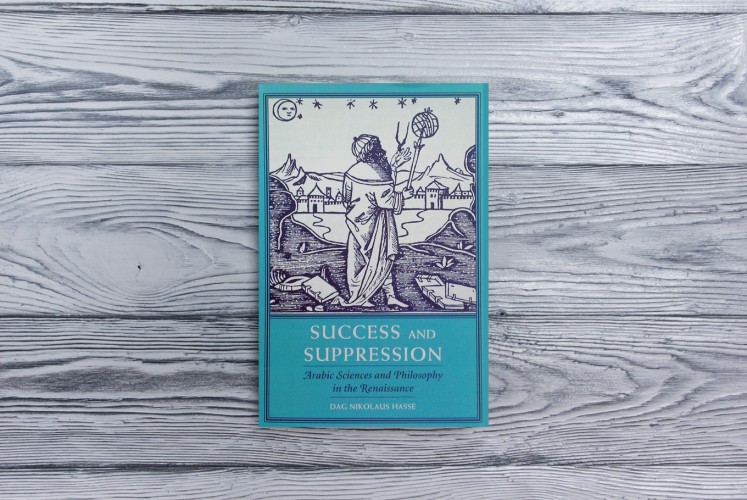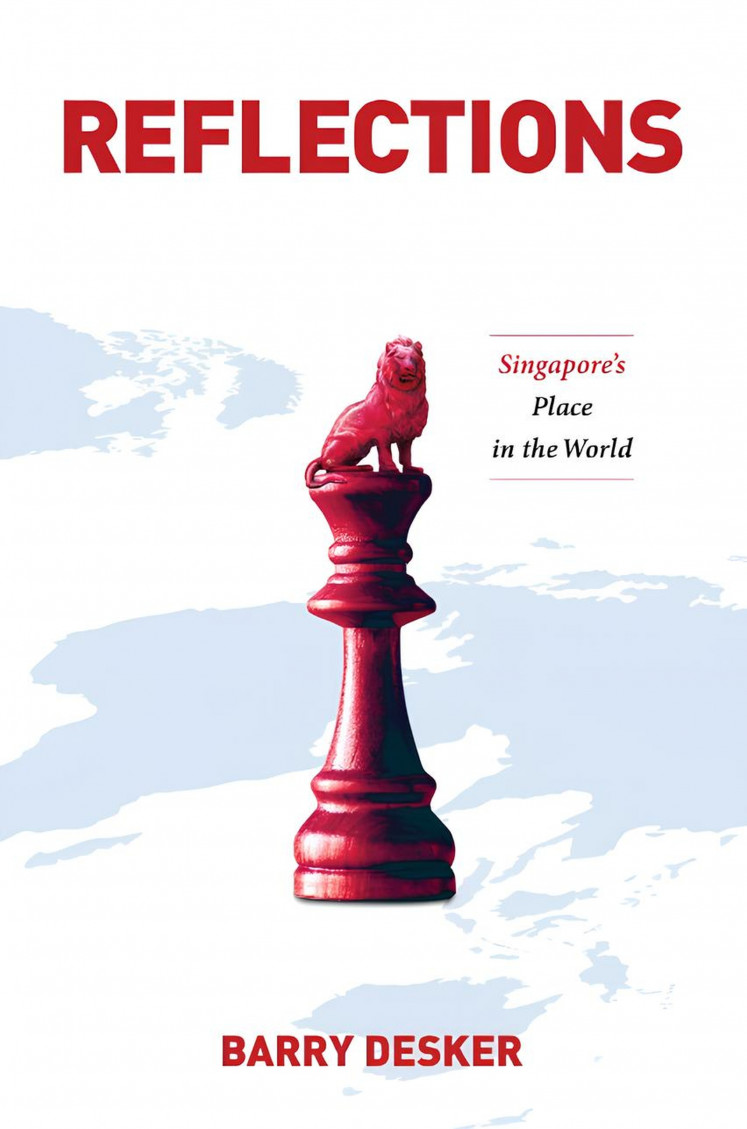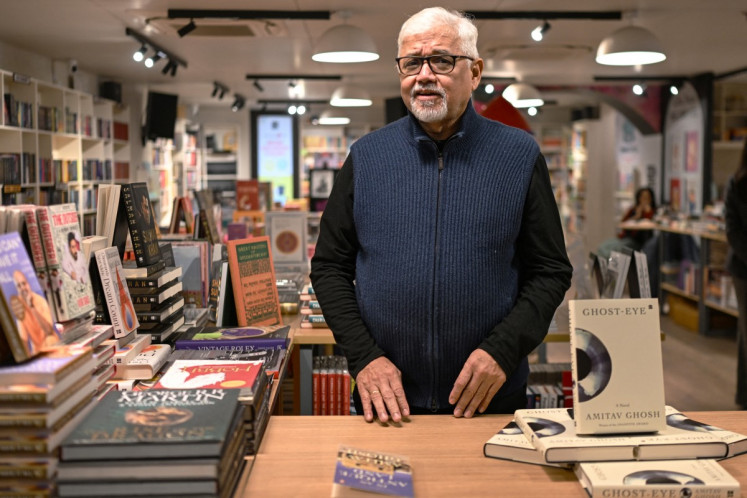Popular Reads
Top Results
Can't find what you're looking for?
View all search resultsPopular Reads
Top Results
Can't find what you're looking for?
View all search resultsDag Nikolaus Hasse: Tracing Islamic legacy during the Renaissance
The tug-of-war between Islamophobes and Islamic ideologists in Europe was a source of intrigue for German professor Dag Nikolaus Hasse and an inspiration for his research.
Change text size
Gift Premium Articles
to Anyone
G
erman philosophy professor Hasse, who teaches the history of philosophy at the Julius Maximilian University of Würzburg in Germany, said he was overwhelmingly thrilled upon receiving the 2018 Sheikh Zayed Book Award for his work, Success and Suppression: Arabic Sciences and Philosophy in the Renaissance, which was published in November 2016 by Harvard University Press.
The 12th Sheikh Zayed Book Award in late April commemorated the 100thanniversary of the birth of the late Sheikh Zayed bin Sultan al-Nahyan, the founding father of the United Arab Emirates, by granting eight prizes to writers who have enriched the Arabic literary scene and institutions that helped introduce Arabic culture to the world.
“[The award] makes the book known to readers in the Islamic world. In some years, it will be possible to say whether the book is having a significant influence on research and whether it helps to broaden our view of the European Renaissance,” the 49-year-old Hasse said upon receiving the award.
The book itself talks about the Arabic influence on Western science in the Renaissance period in the two centuries from 1400 to 1600 AD.
“It is well known that Arabic science much influenced Christian Europe in the Middle Ages before 1400. The book shows that some Arabic traditions in Europe reached the peak of their influence even later, in the sixteenth century, for instance in pharmacology, psychology and astrology. This influence faded out around 1600, and I try to explain why: partly because of Western progress, partly because of active suppression,” he said.
According to Hasse, the Renaissance — the age of the rediscovery of Greek and Latin sources, humanism and of the invention of printing — was also a period of intensive discussion and polemics. A good deal of polemics was directed against Arabic traditions in Christian Europe by radical humanists and by some church officials, he added.
Success and Suppression: Arabic Sciences and Philosophy in the Renaissance by Dag Nikolaus Hasse (Shutterstock/File)“I found this irritating, because I admire the accomplishments of both Arabic culture and Greek and Latin culture. How could it be that these traditions were seen as conflicting? What were the underlying motives behind the polemics? Why did the West gradually disconnect from its Arabic sources?” he said of the driving force behind his research project.
He said at a press conference that Europe’s tendency to suppress Arabic influences on its scientific tradition still went on today, when Islamophobia had resulted in an under-representation of Islamic influences in Western science history. On the other hand, he added, there were some parties who over-represent the Islamic influences, he added, showcasing how ideology could influence science, which was supposed to be value-free.
“It is natural for all human beings to base judgments on one’s own experience and perspective. And it is also productive: partiality is an important motor of cultural and even of scientific achievement, because we need to be committed to an idea and to focus on it, in order to start working on it. But partiality can easily deteriorate into ideology, into irrational beliefs that determine our worldview,” he said.
“Why do these ideologies have an impact on historical research? For many ideologies, it is essential to retell the past in a distorted manner in order to ‘explain’ where we come from: to explain what the essence of Europe is, or what the essence of Islam is, or what the essence of China is,”
“In truth, history is far too complex to allow for such ‘essences’, but the ideological desire for essentialist views seems to me the main reason for the influence of ideology on historical research.”
According to Hasse, fortunately ideological books on history usually are not written for research colleagues, but for the public book market. This is why it is important that scholars take the time and effort to comment in the media on such ideological books.
“It took 19 years, from 1997 to 2016, to write and publish the book, with many intervals in which I did not work on it. The core and backbone of the book is a long survey chapter which lists all printed editions of Arabic authors in Latin translation before 1700. This list testifies to the enormous presence of Arabic authors on the European book market and on academic bookshelves,” he explained.
Hasse studied philosophy, history, Latin and Arabic at three universities: The University of Göttingen in Germany for his bachelor’s degree, Yale University in the United States for his postgraduate degree and the University of London in the United Kingdom for his doctorate degree.
He said that when he enrolled on his bachelor’s degree program, he had dreamed of studying Greek philosophers.
Upon becoming aware that thousands of doctoral dissertations on Greek philosophy had already been written, he said he remembered the interesting corners of Medieval Latin libraries with books translated from Arabic he had read from Umberto Eco’s novel The Name of the Rose.
“I became attracted aesthetically by Arabic libraries in German universities: the wonderful script, the many unreadable books. I still entertain an aesthetic admiration for Arabic script and spoken Arabic,” he added.
“Learning about the great historical metropolises of the Islamic world from Cordoba to Damascus to Samarkand has invested me with optimism about life in a world of migration. For many centuries, people with different religions, cultures and languages lived together […] not necessarily mingling, but at least tolerating each other,”
“I can retain my own culture, even if my neighbors cultivate a different way of living. That can be learned in New York and London too, and that changes the perspective on your own life.”

